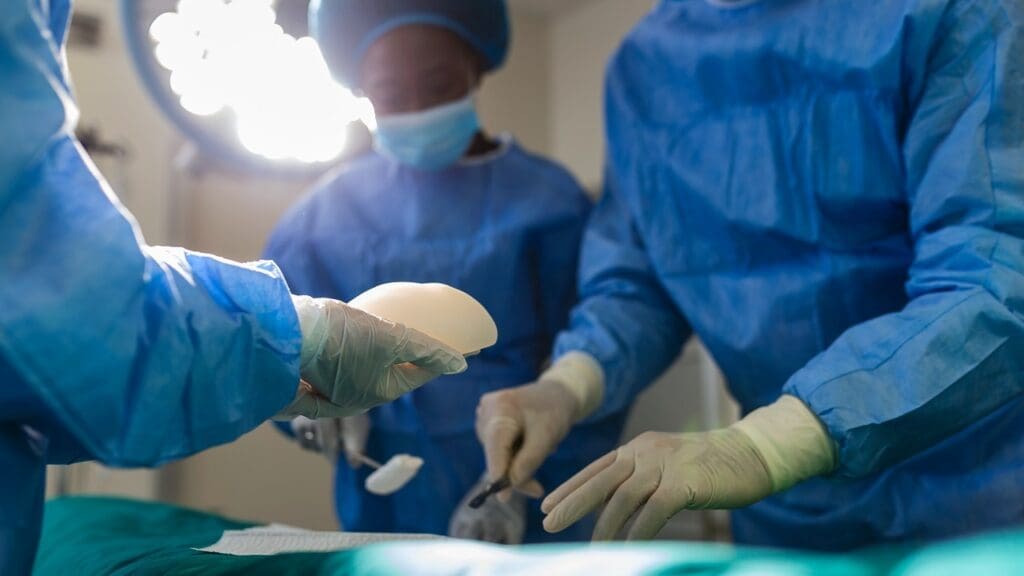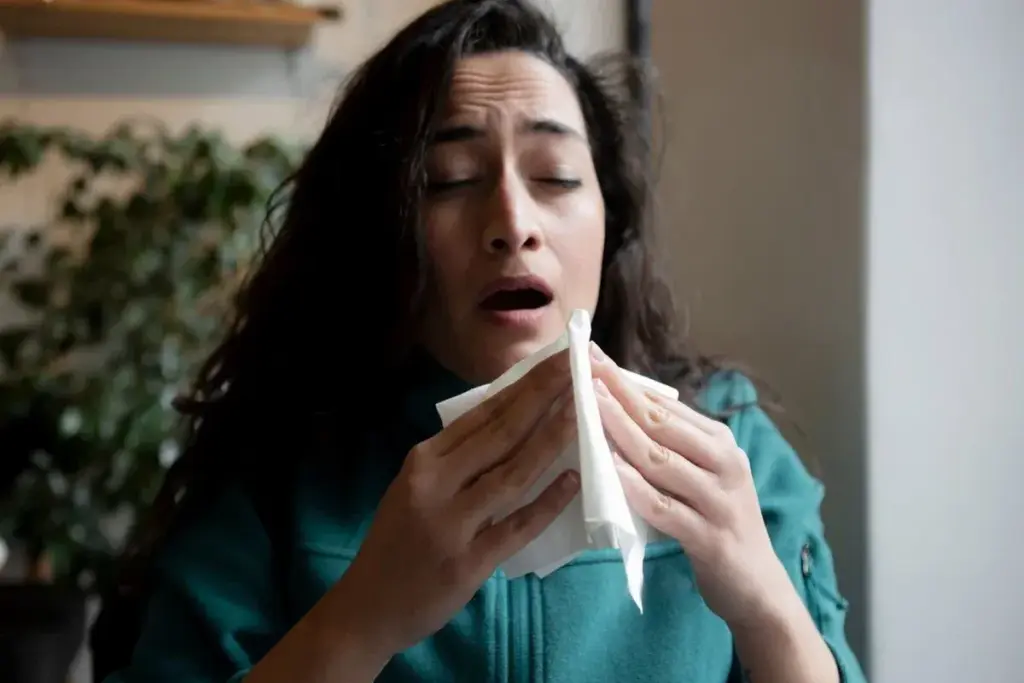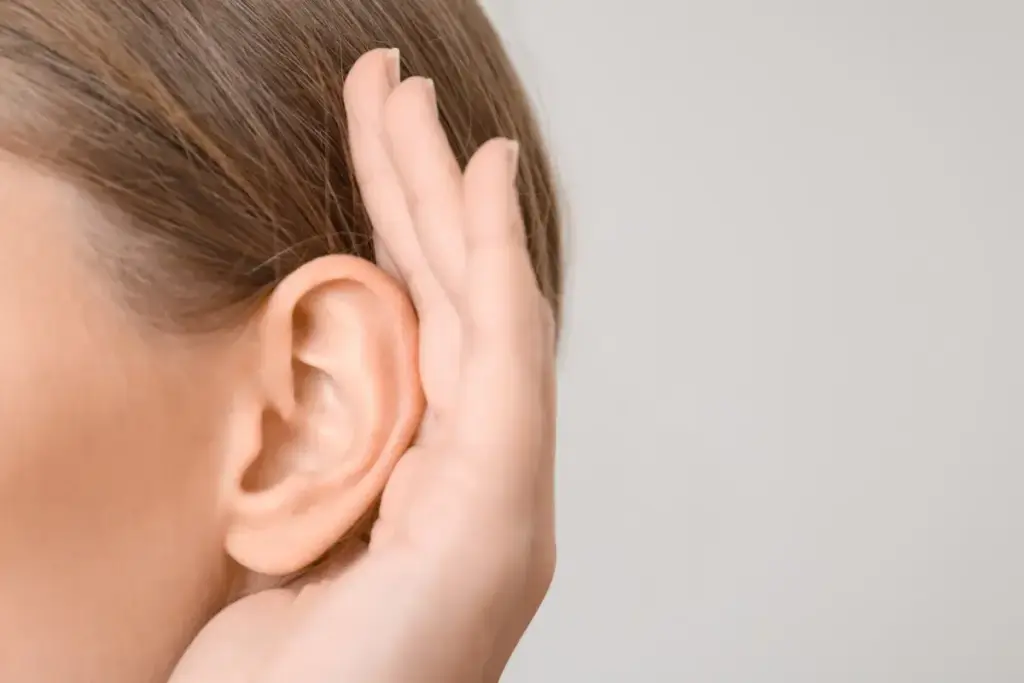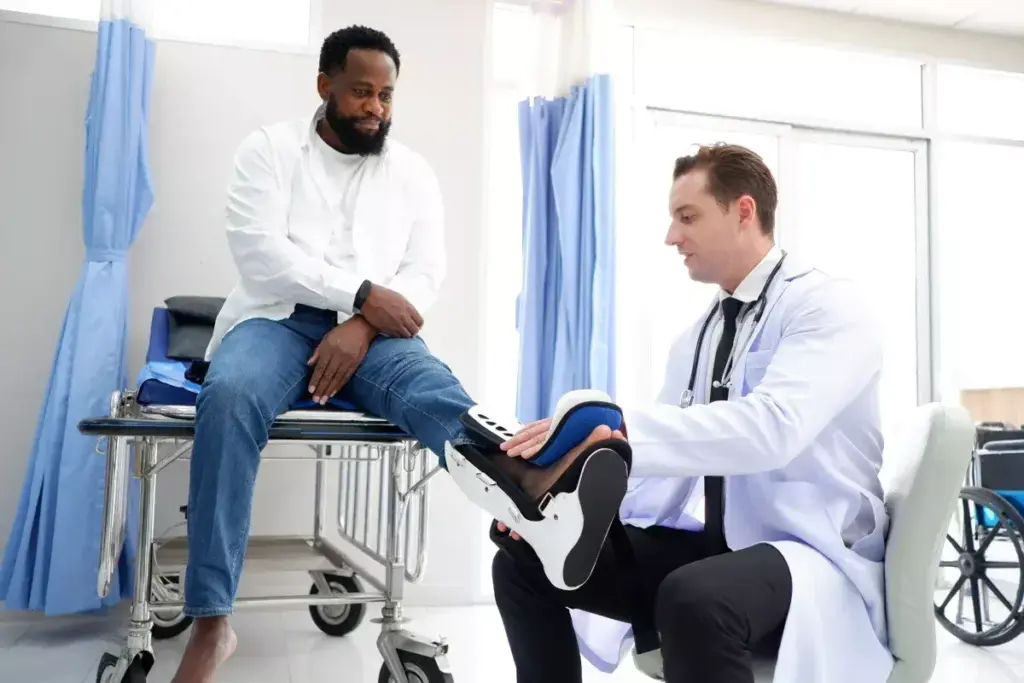
At Liv Hospital, we get it. Men worry about how prostate removal affects their sex life. Radical prostatectomy, which removes the prostate gland, changes a man’s ability to ejaculate semen. This is because the surgery also takes out the seminal vesicles, key for making semen.
Even though men can’t ejaculate semen after surgery, many can feel orgasm. This is called a “dry orgasm.” We’re here to help men and their partners understand these changes. We offer reliable, current advice to deal with sexual function changes after prostate removal.
Key Takeaways
- Radical prostatectomy removes the prostate and seminal vesicles, eliminating the ability to ejaculate semen.
- Many men can stil experience orgasm after prostate removal, known as “dry orgasm.”
- Our team at Liv Hospital provides complete support to help men navigate changes in sexual function.
- Understanding the effects of prostate removal on ejaculation and orgasm is key for managing expectations.
- Men and their partners can get guidance on adapting to these changes with confidence.
Understanding Prostate Removal Surgery

Men with prostate cancer need to know about prostate removal surgery. This surgery, known as radical prostatectomy, is a big step in treating prostate cancer that’s only in the prostate.
What is a Radical Prostatectomy?
A radical prostatectomy means taking out the prostate gland and nearby lymph nodes. This surgery is mainly for prostate cancer that’s only in the prostate gland. The aim is to get rid of all cancerous tissues to stop it from spreading.
Common Reasons for Prostate Removal
Mostly, prostate removal is for localized prostate cancer. It might also be suggested for high-risk prostate cancer or when other treatments don’t work. Deciding on surgery is after careful talk with a doctor.
Different Surgical Approaches
There are a few ways to do radical prostatectomy, like open surgery, laparoscopic surgery, and robot-assisted surgery. Each method has its own benefits and is picked based on the patient’s situation and the surgeon’s skills. The surgery type can affect how well the patient recovers and does afterward.
The Role of the Prostate in Male Sexual Function

It’s important to understand how the prostate affects male sexuality after surgery. The prostate gland is key to the male reproductive system. It plays a big role in sexual function and ejaculation.
How Normal Ejaculation Works
Ejaculation is a complex process involving many organs, including the prostate gland. During orgasm, the prostate gland contracts. This releases prostatic fluid into the urethra.
The fluid mixes with sperm and fluids from the seminal vesicles to form semen.
Components of Semen Production
Semen production involves many glands working together. The seminal vesicles produce most of the seminal fluid. The prostate gland adds enzymes and proteins that help sperm function.
Together, the prostate and seminal vesicles make up most of the seminal fluid.
The Prostate’s Contribution to Sexual Pleasure
The prostate gland also plays a role in sexual pleasure. Some men find prostate stimulation enhances their sexual pleasure. The prostate’s role in orgasm is being researched.
The prostate affects both the physical aspects of ejaculation and the overall sexual experience.
Can You Stil Ejaculate Without a Prostate?
Men often wonder if they can ejaculate after prostate removal surgery. The answer depends on the changes that happen during and after surgery.
The Physical Reality After Surgery
After removing the prostate and seminal vesicles, the body changes. The prostate is key in making seminal fluid, a part of ejaculate.
Why Traditional Ejaculation Is No Longer Possible
Traditional ejaculation happens when semen is released during orgasm. But after prostate removal, most men have “dry orgasm”. This is because the seminal vesicles and prostate are gone, taking most ejaculatory fluid with them. Medical research shows this is due to the surgery.
What Happens to Sperm Production
Sperm is made in the testicles, which stay during surgery. But, the seminal vesicles, which help sperm, are removed. This means there’s no semen to ejaculate, causing dry orgasms.
| Aspect | Pre-Surgery | Post-Surgery |
|---|---|---|
| Ejaculation Mechanism | Normal ejaculation with semen release | Dry orgasm due to lack of seminal fluid |
| Sperm Production | Sperm produced and mixed with seminal fluid | Sperm production continues, but no seminal fluid |
| Orgasmic Sensation | Normal orgasmic sensation | Variable; some men report similar sensations |
Knowing these changes helps men prepare for life after prostate surgery. While they can’t ejaculate the usual way, some may feel orgasmic sensations differently.
Differentiating Between Ejaculation, Orgasm, and Climax
It’s important for men who’ve had prostate surgery to know the difference between ejaculation, orgasm, and climax. These terms are often mixed up, but they mean different things in the male sexual response.
Defining Each Component of Sexual Response
Ejaculation is when semen is released from the penis, with the pelvic muscles contracting. Orgasm is the intense pleasure felt during sex, which can happen with or without ejaculation. Climax is often the same as orgasm, the highest point of sexual pleasure.
What Changes After Prostatectomy
Prostate removal surgery can change how men feel during sex. Here’s what happens:
- Ejaculation: Men can’t ejaculate the way they used to because the prostate and seminal vesicles are gone.
- Orgasm: Orgasm can feel different, maybe less intense.
- Climax: Climax might stay the same, but it can feel different because of changes in orgasm.
What Sensations Remain Intact
Even with these changes, many men can feel pleasure after prostate surgery. Some men might have dry orgasms, feeling pleasure without ejaculation. Knowing these changes can help men manage their expectations and improve their sexual health.
Experiencing Dry Orgasms After Prostate Surgery
After prostate surgery, many men face a change in their orgasms. This change is called dry orgasm. It’s different because the prostate gland helps make seminal fluid, which is released during orgasm.
What Dry Orgasms Feel Like
Dry orgasms, or retrograde ejaculations, happen when semen goes back into the bladder instead of out. Men might feel the pleasure of orgasm but without the usual release. The feeling can be similar to before surgery for some, but different or less intense for others.
How Pleasure Sensations May Differ
Orgasms after prostate surgery can feel different for everyone. Some men find it pleasurable, even if it’s not the same. The intensity and type of orgasm can change, and some men need to learn what feels good again.
Patient Experiences and Testimonials
Many men have talked about adjusting to dry orgasms after surgery. Some take time to get used to it, but others say their sexual satisfaction stays the same. Here’s a table with some common experiences:
| Aspect of Orgasm | Pre-Surgery Experience | Post-Surgery Experience |
|---|---|---|
| Ejaculation | Normal ejaculation | Dry orgasm/retrograde ejaculation |
| Pleasure Sensation | Variable intensity | Variable, sometimes less intense |
| Sexual Satisfaction | Generally high | Can be maintained with adjustment |
Knowing about these changes can help men get ready for and adjust to their new sexual experiences after prostate surgery.
Sexual Function Statistics Before and After Prostatectomy
Prostatectomy greatly affects sexual function. It’s key to know the stats before and after surgery. We’ll look at sexual health before surgery, erectile dysfunction rates after, and how orgasmic function recovers.
Baseline Sexual Health in Prostate Cancer Patients
Many prostate cancer patients face sexual issues before surgery. Erectile dysfunction is common, affecting 30% to 60% of them. This depends on age and health.
Erectile Dysfunction Rates After Surgery
After prostatectomy, erectile dysfunction rates jump. Studies show it affects 50% to 90% of patients. This varies based on surgery type and pre-surgery sexual health.
Orgasmic Function Recovery Statistics
After prostatectomy, men can’t have traditional ejaculation. Yet, some experience dry orgasms. Recovery rates for orgasm vary, with 20% to 70% of men feeling some sensation. But it’s often different from before surgery.
| Sexual Function Aspect | Pre-Prostatectomy Rate | Post-Prostatectomy Rate |
|---|---|---|
| Erectile Dysfunction | 30-60% | 50-90% |
| Orgasmic Function Recovery | N/A | 20-70% |
Factors Affecting Sexual Recovery After Prostate Removal
It’s important to know what affects sexual recovery after prostate surgery. This recovery is complex and influenced by many things.
Age and Pre-existing Health Conditions
Age and health before surgery matter a lot. Older people or those with health issues like diabetes may recover slower. Medical News Today says, “Pre-existing health conditions can significantly impact the recovery process.”
Nerve-Sparing Surgical Techniques
Using nerve-sparing techniques is key to keeping sexual function. Surgeons aim to save nerves around the prostate for better erections. Studies show, “Nerve-sparing prostatectomy has been shown to improve outcomes in sexual recovery,” according to recent studies.
Surgeon Experience and Expertise
The surgeon’s skill and experience are very important. A skilled surgeon can greatly improve recovery. Specialized urological centers have surgeons with the right expertise.
Benefits of Specialized Urological Centers
Specialized centers offer top-notch care and support. They handle complex cases and provide better results. Experts say, “Treatment at specialized centers can make a significant difference in patient outcomes.”
Knowing these factors helps patients prepare for their recovery. It helps them make informed choices about their care.
Timeline for Sexual Function Recovery
Recovering sexual function after prostate surgery takes time and patience. The time it takes can vary a lot. This depends on the surgery method and the patient’s health.
Immediate Post-Surgery Expectations
Right after surgery, sexual function often drops a lot. This is normal because the body reacts to the surgery. Remember, this drop is not a sign of lasting problems.
Short-term Recovery (1-6 Months)
In the first few months, some patients start to feel better. Nerve-sparing techniques can help a lot. Research shows many see big improvements in 3 to 6 months.
Long-term Recovery (6-24 Months)
For many, sexual function keeps getting better over time. Studies show big gains in 6 to 24 months. One study found most men see their erectile function come back in 2 years Source.
When to Expect Maximum Improvement
Most men see the best results in 1 to 2 years. But, everyone is different. Age, health before surgery, and the surgeon’s skill all matter.
Helping patients through recovery means setting realistic hopes and talking openly. Understanding the recovery timeline helps manage hopes. It makes the recovery journey better.
Medical Interventions to Improve Sexual Function
Many medical options are available to help men after prostate surgery. These aim to tackle sexual health issues post-prostatectomy. They improve the quality of life for patients.
Medication Options for Erectile Function
Medicines are key in managing erectile dysfunction (ED) after prostate surgery. Phosphodiesterase type 5 inhibitors (PDE5 inhibitors) are often used. They increase blood flow to the penis, helping to get an erection.
Examples include sildenafil (Viagra), tadalafil (Cialis), and vardenafil (Levitra). The right medication depends on the patient’s needs and health.
Penile Rehabilitation Protocols
Penile rehabilitation aims to restore erectile function after surgery. It uses PDE5 inhibitors, vacuum erection devices, or penile injections. These methods help blood flow and prevent tissue damage.
When to Start Sexual Rehabilitation
Starting sexual rehabilitation early is important. Programs usually begin a few weeks after surgery. Early start helps prevent tissue damage and aids in healing.
Mechanical Devices and Aids
Along with medicines, mechanical aids can help restore sexual function. Vacuum erection devices (VEDs) are a non-invasive option. They work by creating a vacuum around the penis, drawing blood into it.
| Device/Aid | Description | Benefits |
|---|---|---|
| Vacuum Erection Devices (VEDs) | Non-invasive devices creating a vacuum to induce an erection | Non-invasive, can be used with or without PDE5 inhibitors |
| Penile Implants | Surgical implants that can be inflated to create an erection | High success rate, allows for spontaneity |
| Penile Injections | Direct injections into the penis to induce an erection | Effective for some patients, can be used in conjunction with other treatments |
These medical options offer hope for men looking to regain their sexual health after prostate surgery. It’s vital to talk to a healthcare provider to find the best treatment plan.
Psychological Aspects of Sexual Recovery
Men facing sexual recovery after prostate surgery need psychological support. The surgery’s impact on sex life is big. It affects both physical and mental health.
Managing Expectations and Anxiety
It’s key to manage expectations and anxiety before prostate surgery. Knowing what changes might happen can help. Research shows that mental support is key for a better recovery (Source: La Trobe University review).
Communication Strategies With Partners
Talking openly with your partner is vital for recovery. Sharing feelings and concerns can make your relationship stronger. Counseling can help you both deal with these changes.
When to Seek Psychological Support
Knowing when to get help is important. If you feel anxious, depressed, or worried about sex changes, you might need help. Getting support can greatly improve your mental health and life quality.
Impact on Relationships and Self-Image
Prostate surgery can affect your relationship and how you see yourself. You might feel different about your masculinity or closeness with your partner. Talking openly and seeking help can help with these feelings.
| Psychological Aspect | Impact on Recovery | Support Strategies |
|---|---|---|
| Managing Expectations | Reduces anxiety and improves mental well-being | Realistic counseling, support groups |
| Communication with Partners | Strengthens relationships and facilitates recovery | Couples counseling, open dialogue |
| Seeking Psychological Support | Improves mental health and quality of life | Professional counseling, therapy |
Liv Hospital’s Approach to Post-Prostatectomy Care
Liv Hospital is dedicated to top-notch post-prostatectomy care. We focus on each patient’s unique needs. Our goal is to support patients fully during their recovery.
Specialized Sexual Health Rehabilitation Programs
We have specialized sexual health rehabilitation programs for prostate surgery patients. These programs are customized for each patient. This ensures the best results for them.
Patient-Centered Innovation in Care
At Liv Hospital, we put patient-centered care first. We use the latest medical tech and treatments. This helps improve patient recovery and happiness.
Multidisciplinary Team Approach
Our multidisciplinary team includes experts like urologists and psychologists. They work together for complete care. This team approach covers all health aspects.
International Standards and Protocols
We follow international standards and protocols in post-prostatectomy care. This ensures our patients get the best treatment. Our commitment to these standards shows in our treatment success and patient happiness.
Some key parts of our care include:
- Personalized rehabilitation plans
- Advanced medical treatments
- Ongoing support and counseling
Conclusion
Prostate removal surgery, or prostatectomy, greatly affects a man’s sexual function. It’s important to understand these changes to manage expectations and navigate recovery.
We’ve talked about how surgery impacts ejaculation, orgasm, and sexual pleasure. While men can’t have traditional ejaculation anymore, many have dry orgasms. Some even regain their ability to get an erection over time. The recovery varies based on age, surgery type, and health before surgery.
At Liv Hospital, we focus on complete care, including special sexual health programs. Our team works together to support each patient’s recovery. We use the latest medical and psychological strategies to help men regain their sexual health and improve their life quality after surgery.
In the end, prostatectomy brings challenges, but it’s not the end of sexual function. With the right care and support, many men can make significant progress. They can look forward to a fulfilling life.
Can men ejaculate after prostate removal?
No, men can’t ejaculate semen after prostate removal. This is because the prostate gland and seminal vesicles are removed. These parts produce seminal fluid. But, they might feel orgasm, but it could be different.
What is a dry orgasm, and is it common after prostate surgery?
A dry orgasm is when you orgasm but don’t ejaculate. It’s common after prostate surgery. This is because the prostate and seminal vesicles are gone. So, there’s no semen to ejaculate. Men might feel pleasure and climax, but it’s different.
How long after prostatectomy can you ejaculate?
After a radical prostatectomy, you can’t ejaculate semen. This is because the prostate and seminal vesicles are removed. Your body can’t ejaculate semen anymore.
Can a man experience orgasm after prostate removal?
Yes, men can have orgasm after prostate removal. But, it might feel different. Some men might have dry orgasms.
What factors affect sexual recovery after prostate removal?
Several things can affect sexual recovery. These include age, health before surgery, the surgery type, and the surgeon’s skill. These factors can change how well you recover.
How long does it take to recover sexual function after prostatectomy?
Recovery time varies. Right after surgery, sex function is low. In the first few months, you might see some improvement. But, full recovery can take up to two years.
Are there medical interventions to improve sexual function after prostatectomy?
Yes, there are treatments. These include medicines for erectile dysfunction and special devices. They can help improve sex function and feelings of orgasm.
What psychological aspects should be considered during sexual recovery?
It’s important to manage your expectations and anxiety. Talking to your partner is key. Getting psychological help can also be helpful.
Can you climax without a prostate?
Yes, men can climax without a prostate. The feeling might be different. But, the prostate’s removal doesn’t stop orgasm.
What happens to sperm production after prostate removal?
Sperm production keeps going in the testes. But, the seminal fluid that carries sperm is reduced or gone. This leads to dry orgasms.
References
- Medical News Today: https://www.medicalnewstoday.com/articles/can-you-climax-after-prostate-removal
- Harvard Health Publishing: https://www.health.harvard.edu/blog/achieving-orgasm-after-radical-prostatectomy-201310152034
- National Center for Biotechnology Information (NCBI) / PMC: https://pmc.ncbi.nlm.nih.gov/articles/PMC1477599/
- Cancer Research UK: https://www.cancerresearchuk.org/about-cancer/prostate-cancer/practical-emotional-support/sex-relationships/difficulty-getting-erection










